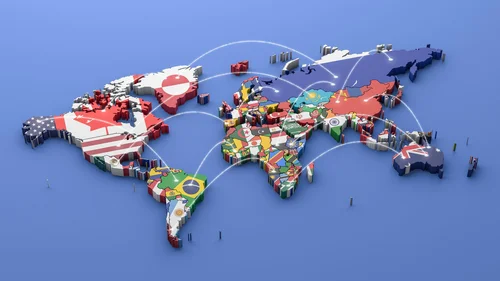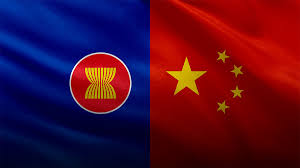Shaping the Future of the Indo-Pacific
Independent, policy-driven research and regional programs for security, democracy, and development.
The Indo-Pacific Studies Center (IPSC) is an independent, non-partisan think tank committed to shaping the future of the Indo-Pacific through policy research, regional engagement, and education.
We work to advance democracy, peace, and sustainable development by connecting researchers, practitioners, and communities across the region. Our work spans key focus areas including security, climate, human rights, trade, and governance.
Founded in 2022, IPSC brings together diverse voices from the Indo-Pacific to promote inclusive, evidence-based solutions to regional challenges.
Strategic Insight & Regional Foresight
The Indo-Pacific is entering a period of profound change — driven by geopolitical shifts, climate disruption, and contested strategic norms. In this environment, timely insight and grounded analysis are essential.
IPSC is the Indo-Pacific’s premier regional strategic intelligence platform — built by and for the region.
Through a regionally anchored network and deep thematic expertise, we support public, institutional, and cross-sector partners seeking to navigate complex developments across the Indo-Pacific.
Featured Research / Latest Insights
Explore our latest analysis on Indo-Pacific security, democracy, and development
Our Key Programs
IPSC delivers innovative programs that connect policy, research, and regional engagement. Explore our flagship initiatives designed to shape Indo-Pacific futures.

Mastering Strategy and Policy in the Indo-Pacific (MPSI)
IPSC’s flagship live online executive certificate for senior professionals navigating Indo-Pacific strategy, alliances, and policy design across government, multilateral, and corporate settings.
Learn More
Geopolitical Risk, Grand Strategy & Alliance Management (GRGSAM)
An intensive IPSC Executive Certificate in Indo-Pacific Strategy & Policy focused on strategic competition, defence innovation, and alliance management. Delivered live across three regional time-zone streams, with capped cohorts for a high-engagement, briefing-style learning environment.
Learn More
IPSC-Emerging Leaders Forum
The Indo-Pacific Emerging Leaders Forum empowering future regional leaders through dialogue and collaboration.
Learn More
State of the Indo-Pacific Annual Report
Our flagship annual report and regional dialogue series tackling key Indo-Pacific challenges.
Learn More
Call for Papers: Strategic Futures of the Indo-Pacific 2026 Volume 2
Submit your abstract on Indo-Pacific security, governance, or climate by 15 March, 2026.
View Details
Regional Policy Incubator
A collaborative initiative supporting emerging policy thinkers to co-develop practical solutions for the Indo-Pacific.
Explore
Environmental Policy Lab
Exploring regional climate action, energy equity, and sustainability with researchers across the Indo-Pacific.
Learn More
IPSC Emerging Scholars of the Indo-Pacific Program
A dynamic 12 to 24 week research and policy program for students and early-career professionals across the Indo-Pacific.
Final Application Deadline Date:
15 January 2026
Learn More
Non-Resident Fellows Program
Our global network of scholars, analysts, and practitioners conducting original research and driving regional engagement.
ExploreAnnouncements
Upcoming Events/Webinars
Join IPSC’s live dialogues, briefings, and regional roundtables. We bring together experts, policymakers, and scholars across the Indo-Pacific.
Stay Connected to IPSC
Join our regional network and receive insights, events, and policy updates
Join our growing network of researchers, students, policymakers, and regional leaders shaping the Indo-Pacific’s future.
Subscribe to receive invitations to IPSC webinars, updates on our latest research, and calls for collaboration and participation—directly to your inbox.

















